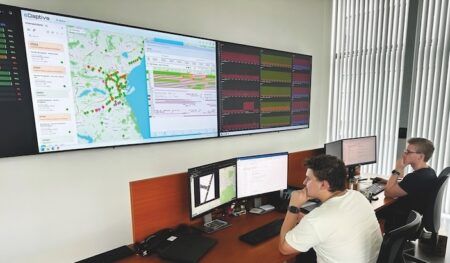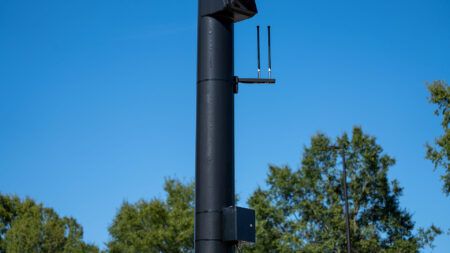Singapore’s Nanyang Technological University (NTU) and NXP, the world-leading automotive semiconductor supplier for connected cars, have launched Singapore’s first Smart Mobility Consortium to focus on testing and developing smart mobility technologies.
The new technologies will be tested on the NTU campus, which serves as a living testbed, bringing together 12 industry partners to form the NTU-NXP Smart Mobility Consortium. To develop innovations in smart mobility, the consortium will harness an international wireless standard for vehicular use known as the vehicle-to-everything (V2X) communication technology. This standard has also been adopted by the USA and Singapore for use in their transportation systems and is an essential part of autonomous vehicle networks. The 12 companies bring together their different expertise from the V2X innovation ecosystem, such as wireless communication design, data analytics, and network security.
The new consortium will enable more industry partners to test their smart solutions while enjoying the benefits of cost-sharing on the testbed, which is supported by the Singapore Economic Development Board. The industry partners include electronics giant Panasonic, American software multinational Red Hat, and automotive system manufacturers Schaeffer and Denso, as well as ST Kinetics, the land systems and specialty vehicles arm of ST Engineering. Some of the technologies developed in the testbed, such as automated video analysis and environmental sensors, have potential beyond mobility and can also be deployed as solutions for Singapore’s Smart Nation initiative.
Working with the consortium members, NTU and NXP will be launching projects to develop and trial new technologies and solutions for a suite of mobility applications that will enhance safety of both driven and driverless vehicles, as well as personal mobility devices.
Fully deployed since December 2016, the backbone of the testbed at NTU is supported by NXP’s secure communication systems that runs on the IEEE 802.11p and 1609 standard, and can link cars, traffic lights, and other infrastructure in a campus-wide network. The NTU-NXP Test Bed consists of 50 vehicles equipped with a smart onboard unit (OBU) and 35 roadside units (RSUs) with video cameras mounted on street lamps throughout the university. The facility has an ‘always on’ data center capable of handling live video and V2X data collection, and also has a command center that can monitor NTU’s traffic in real time and broadcast safety information.
“Our researchers have developed novel ideas and technological solutions that are in line with Singapore’s Smart Nation vision and are highly relevant for the industry,” explained Professor Yoon Soon Fatt, chair of NTU’s School of Electrical and Electronics Engineering. “This new consortium will be a platform to turn such innovations into actual products, which can then be adapted to other big cities facing similar smart mobility challenges.”
Dr Wang Hai, SVP of global technology innovation at NXP, added, “The launch of the consortium is an important step in realizing Singapore’s vision of a sustainable transport system that includes driverless vehicles. It brings together industry players in V2X adoption to drive innovation within Singapore’s rich network of industry, academia and government support.”




